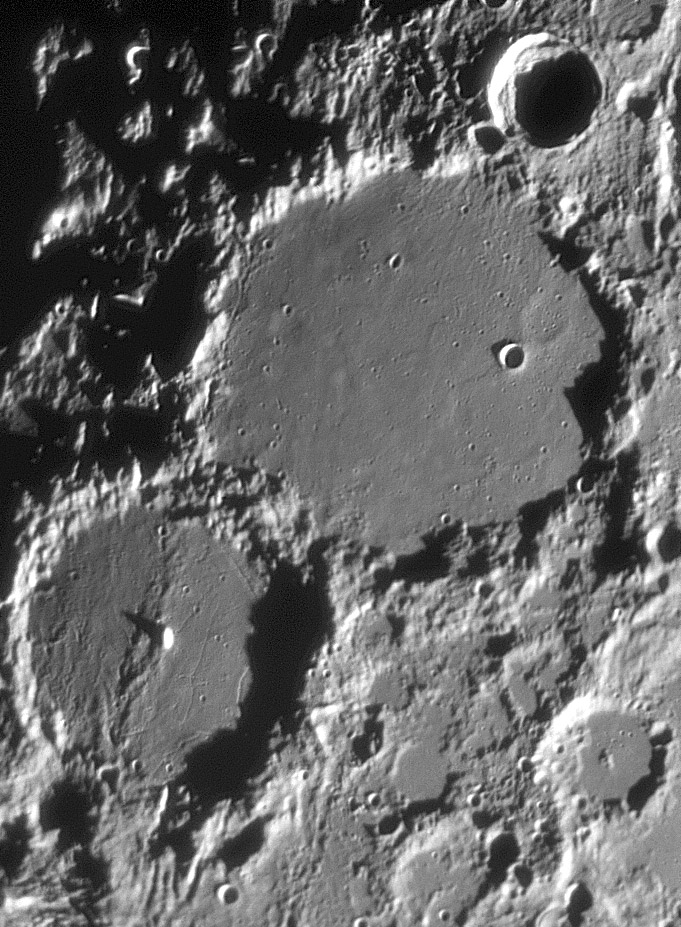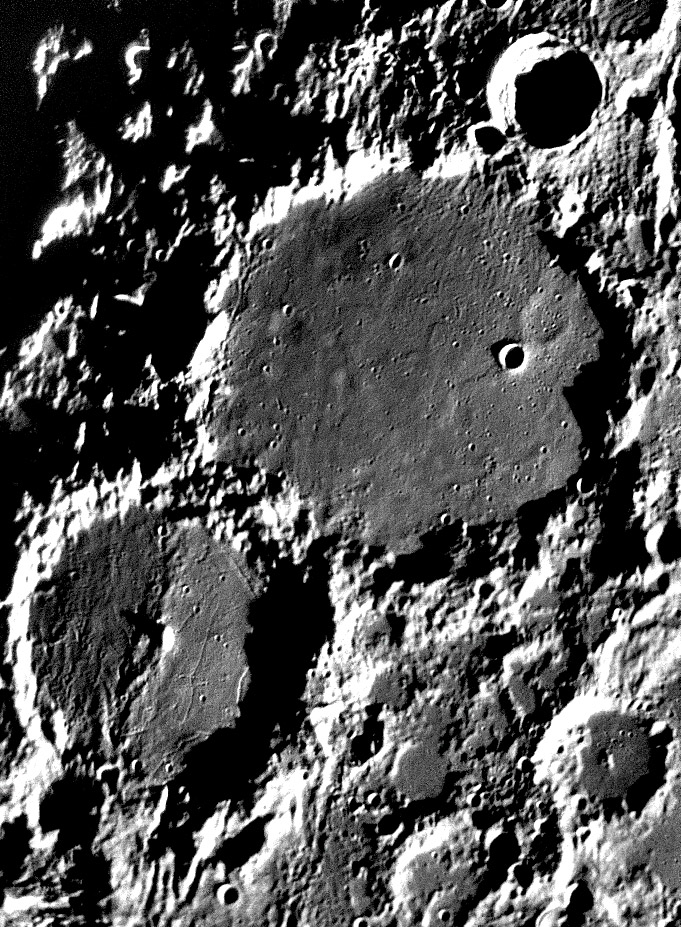
image by Mike Wirths
This is a repeat of a wonderfully instructive LPOD from a year ago today.
When I read Mike Wirth’s email that he was sending an image of Alphonsus and Ptolemaeus I thought it would be a good shot, just like a number of other good shots that LPOD has used. I was wrong. It is good, but like the very best LPOD images, I - and I hope you - learned quite a bit new from studying it. Ptolemaeus is well known as a relatively flat-floor crater with saucers - probably buried craters. This image shows more variation in the micro-topography of the floor that I have noticed before. In the version of the image below (that I strongly enhanced) you can see low relief areas that suggest the fronts of flows - lava flows or ejecta surge flows? The floor of Alphonsus also shows surprises. The eastern side is smooth and crossed by numerous rilles (and notice the volcanic dark halo crater at bottom right) but the west half is covered by textured debris. Even excellent images at higher Sun angles fail to show this rougher floor. Its existence explains why the rilles only exist on the eastern side of the floor: they are buried on the west side. Nobody knew that.
Technical Details:
March 8, 2006. 18″ Starmaster dob, 2.5X’s Powermate barlow, R/IR True Tech filter, Infinity 2-2 camera, 150 frames out of 1100 Done in Registax 3 and Photoshop CS/ Images Plus.
Related Links:
Rükl chart 44
Yesterday's LPOD: Free Books About the Moon
Tomorrow's LPOD: How Old?
COMMENTS?
Register, Log in, and join in the comments.




